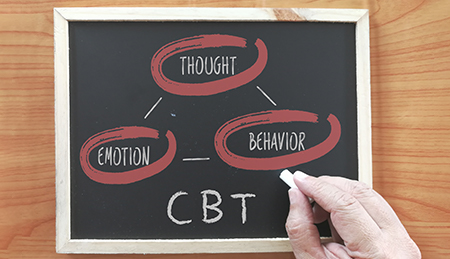 We are all on a journey through life.
We are all on a journey through life.
Sometimes, that journey can feel rocky or an impossible uphill battle. Maybe you feel like you’re walking through a storm… every day.
We are here to help you navigate life’s detours and get on the road to the brighter path you deserve.
We have services to treat a wide range of symptoms and special populations. So, whether you’re homeless, a veteran, a first responder, a member of the LGBTQIA+ community… or just struggling in your life…
We’re here to offer you the respect, dignity, compassion, and skilled therapy you need to heal.
 Our general approach is “holistic” and “strengths-based.”
Our general approach is “holistic” and “strengths-based.”
Treating ALL of you…
A holistic approach to therapy considers the whole person by addressing your mental, physical, spiritual, and emotional needs. We put YOU at the center of your treatment plan, not just your diagnosis.
Our therapists understand how mental health symptoms can impact you spiritually and physically. We consider things such as how much sleep you are getting to how much physical activity you get each week. There are so many variables that affect symptoms you may be experiencing.
We are invested in helping you on your journey to a healthier you.
Leveraging your strengths…
What are your strengths? Are you a good communicator? Do you have strong family support, or are you motivated to change? Recognizing your strengths is an essential starting point for therapy. We believe building on your strengths during the therapy process is important.
A strength-based approach can allow you to see yourself at your best and recognize your value.
Recognizing your value can help you move forward by capitalizing on your strengths instead of negative characteristics.
Providing you tools…
Our therapists will provide the tools you need to succeed during therapy. It is important to learn coping skills when trying to resolve issues or address some problematic symptoms.
Coping skills are techniques you can practice in between sessions to help you manage your symptoms.
And our techniques are “evidence-based” and “person-centered.”
 Cognitive-Behavioral Therapy (CBT)
Cognitive-Behavioral Therapy (CBT)
CBT focuses on negative thought processes and maladaptive behaviors. In other words, it can help you manage your symptoms by changing how you think and behave. Negative thought processes tend to lead to negative feelings and problematic behaviors.
The therapist will typically give some ‘homework’ assignments. These are skills to practice during the week to help reinforce what has been learned in sessions to help reduce symptoms.
 Dialectical Behavioral Therapy (DBT)
Dialectical Behavioral Therapy (DBT)
Dialectical Behavior Therapy is a therapy that is especially used for people who experience emotions intensely. DBT is used to help people focus on accepting the reality of their behaviors while assisting them in learning how to change problematic behaviors.
This process helps reduce symptoms of anxiety, depression, trauma, and emotional dysregulation. It also helps increase a person’s self-worth and self-image.
 Mindfulness
Mindfulness
A basic human ability to be fully present is called Mindfulness. Mindfulness means you are aware of where and what you are doing. This process helps you not be overly reactive or overwhelmed by what’s happening around you.
You are being mindful when you bring awareness to what you’re directly experiencing via your senses. You can also bring attention to your state of mind via your thoughts and emotions. There’s growing research showing that you’re remodeling the physical structure of your brain when you train your brain to be mindful.
Mindfulness is a skill that is most beneficial when practiced daily. This process can help reduce extreme anxiety and stress and help you feel more relaxed and peaceful throughout the day.
 Motivational Interviewing
Motivational Interviewing
Motivational Interviewing is an evidence-based technique to help elicit new behaviors. It’s a technique to empower people to change by guiding them to see their capacity for change.
Motivational Interviewing is founded on respect and supportiveness of a person’s autonomy. The benefits of motivational interviewing include changing high-risk behaviors, building self-confidence, and allowing you to be more self-reliant.
 Trauma-Informed Care
Trauma-Informed Care
Trauma-informed care is a way to look at the bigger picture. It’s not a question of “what’s wrong” but a question of “what’s happened.” Trauma-informed care helps to realize the impacts of trauma, recognize the signs and symptoms, and help to avoid re-traumatization.
The core components of trauma-informed care include safety, trustworthiness, collaboration, and empowerment. These core components help create a healthy healing environment. All our staff is trained in trauma-informed care.
A brighter future awaits you, and we’re here to help.
Are you ready to take that next step?
Still have some questions? No problem.
Call or text us at (850) 792-7795 to schedule a free 15-minute consultation to see if we are a good fit to help you.
Our staff will ask a few basic questions and then match you to the best therapist to meet your needs.


